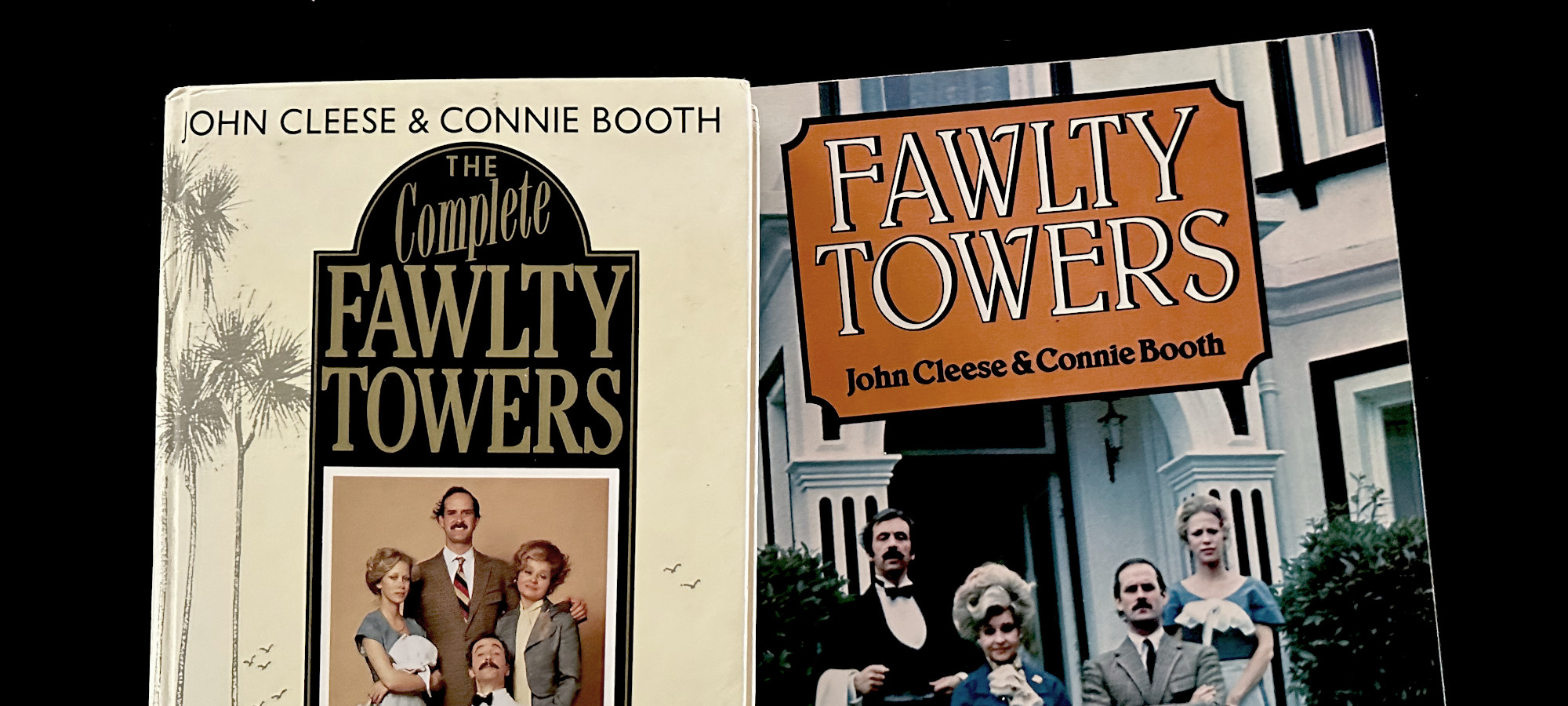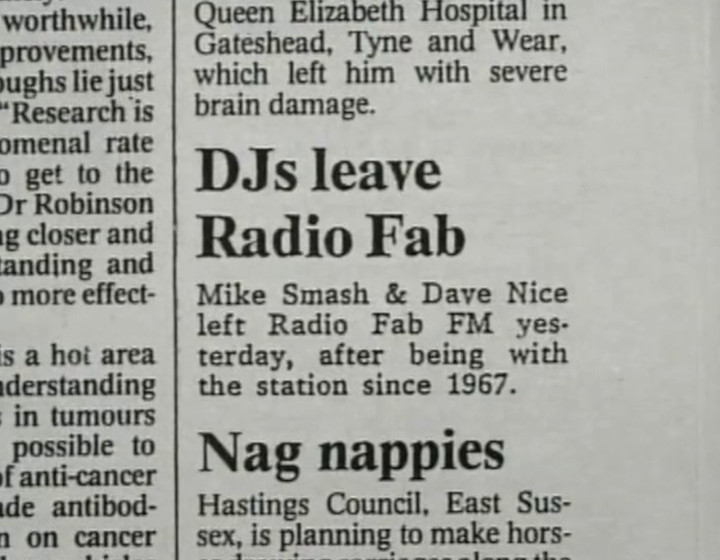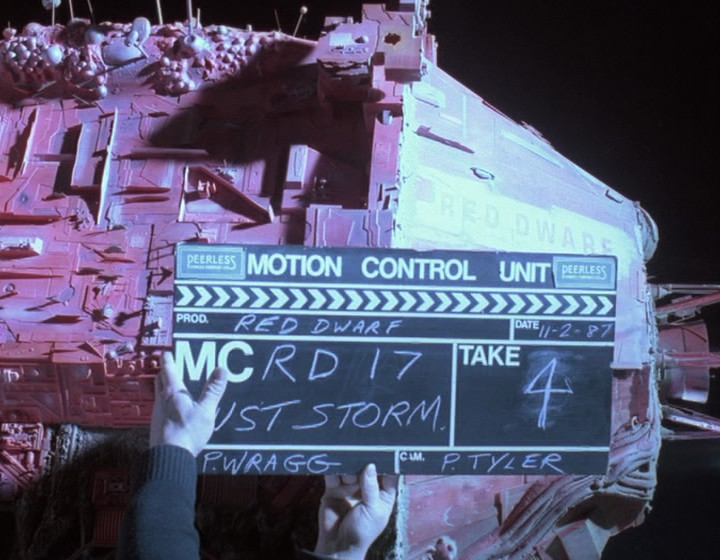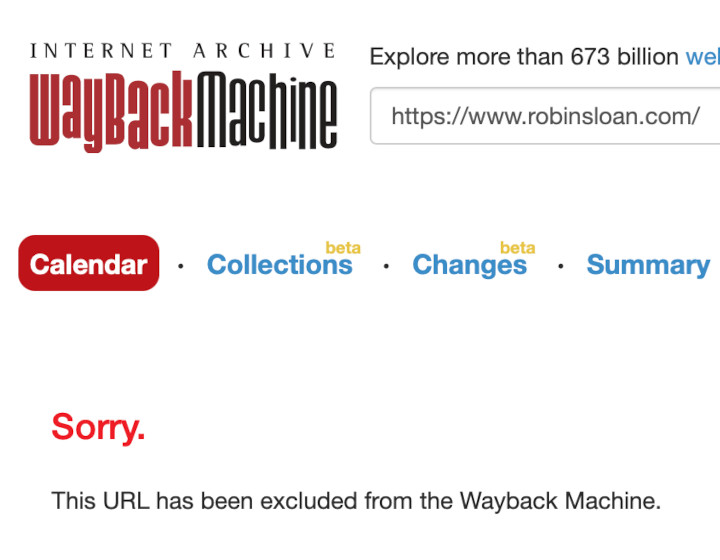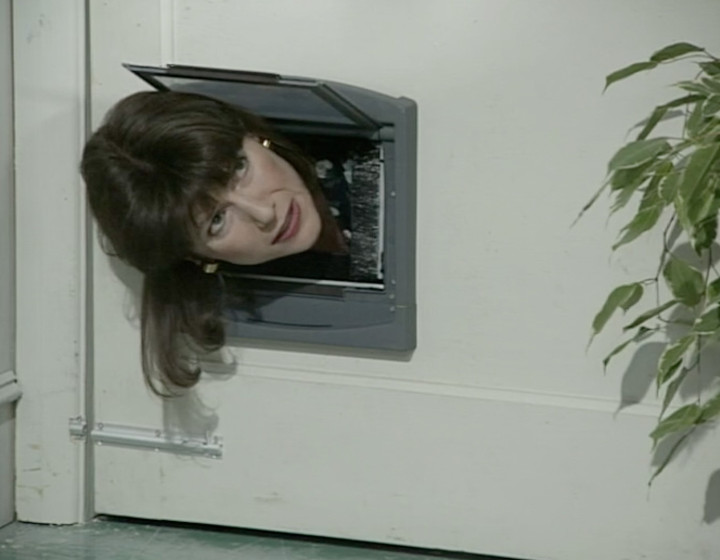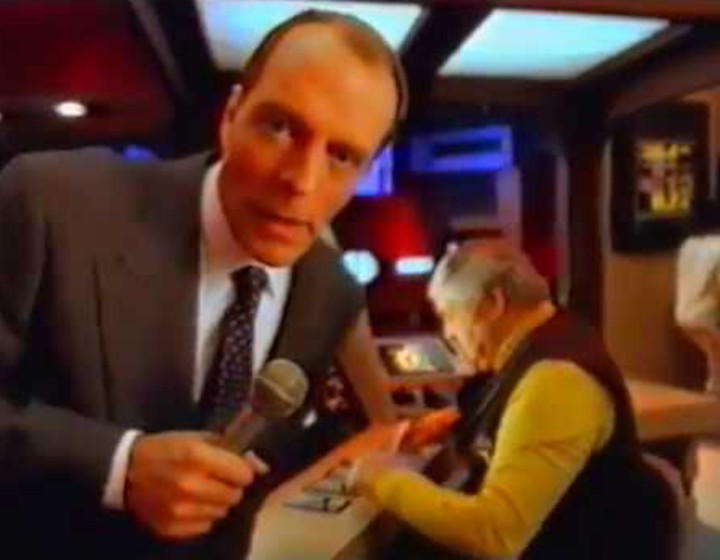2015 • 2016 • 2017 • 2018 • 2019 • 2020 • 2021 • 2022 • 2023 • 2024
I’ll tell you something, I’m utterly bored with writing depressing intros for these end-of-year articles. You know the drill. “Oh, hasn’t this year been awful, global pandemics, politics, blah blah blah, never mind, here’s the best things I’ve written this year.”
So: 2022 has been brilliant, hasn’t it? Everyone had a great time, and people couldn’t be happier. Now here’s the best things I’ve written this year.
* * *
DJs Leave Radio Fab
An in-depth look at the origins of a prop newspaper in Smashie & Nicey: the End of an Era. Well, start the year as you mean to go on. As indeed I did, with similar articles looking at prop newspapers in Red Dwarf and The Young Ones. This is an entire waste of time, and I won’t be writing any articles about this ever again. Such as the one about I’m Alan Partridge which I definitely won’t be publishing next year.
I Want Names, I Want Places, I Want Dates
For years, we’ve heard about the recording of Series 1 of Red Dwarf being abandoned due to an electricians’ strike… but we’ve never known exactly when those abandoned recording dates were. Until now. See also: how a similar strike affected The Young Ones.
A Brief History of a Doorway in Red Dwarf (1989-96)
I mean, seriously. You probably already know if you want to click on that or not. I’m not going to insult your intelligence by trying to sell it. Ditto with this piece about the sets in “Back to Reality”.
Shame.
About why you shouldn’t always feel shame about older versions of you hanging around the web, and why deleting them might not be the best idea. I write a fair bit about the web – and especially the archiving of the web – but rarely make a fuss about it, because I don’t think many people visit this site for that kind of stuff. This is one of the few pieces on this topic which actually got noticed a little.
A Few Random Thoughts on 2point4 children
I saw 2point4 children for the first time properly this year. Here are my long and rambling thoughts about it, but if you want the short version: it’s great. I’d love to write more about the series next year. In the meantime: what was the original theme tune for the pilot?
Tales From BBC North West’s Scene Dock
Here it is. The most popular article I wrote all year, about the links between Chucklevision and Red Dwarf. No, I’m not turning into a parody of myself, now why don’t you sod off?
In Search of the Golden Brain
And there’s the second most popular article I wrote all year, about the truth behind a notorious treasure hunt in the first Spitting Image book. This is the kind of investigation I’d like to write much more of next year, as it’s deeply satisfying. (And yes, I still have that vague idea of writing a Comedy Mysteries book…)
“I Don’t Need a Brolly, You Wally!”
Investigating the day that Jeffrey Fairbrother took a trip aboard the Enterprise, in one of the silliest things ever made. Thank god for old issues of TV Zone. Also this year: proving ST:TNG‘s most prolific director wrong.
Mmmm, Nice
Bizarrely, I’ve never written about Some Mothers Do ‘Ave ‘Em on here before, despite it being one of my favourite shows. So here’s a short tale about the production of Series 1 of the show… and what’s so special about the very last episode of that series. See also: proving Wikipedia wrong about the recording of Are You Being Served.
Relative Time Dilation in an Amazingly Compressed Space
Of all the more personal pieces I’ve written this year, this is my favourite. It captures just a little moment where you’re fully aware of history taking place in front of you… even if it’s really just a little piece of your own history.
That-cher
How did the BBC originally report the news of Margaret Thatcher’s resignation? And can we absolve a BBC daytime presenter of a heinous broadcasting crime? All this and some obscure 1980s production paperwork.
An Evening at Television Centre
Sneaking in at the end of the year, this ended up as one of my favourite pieces, about the pilot of In Sickness and in Health… and why I really, really wish I had a time machine.
* * *
This year has been a bit of a mixed bag. I wrote less than I did in 2021 – more individual posts, sure, but fewer words, and perhaps fewer articles I’m really proud of. On the other hand, in writing this end-of-year piece, I find I’ve actually done a little more I liked than I thought. And at least I finally got the redesign of this place done, which I’ve been putting off for years.1
Truth be told, I’ve found this year quite tough, for reasons that I don’t really want to go into. So I’ll just say: thank you if you read any of my stuff this year, especially if you sent any other visitors my way, or sent me any nice comments, or indeed helped with some of the research. Despite my troubles this year, writing in this place is one of the things which has kept me sane. The fact that other people enjoy my nonsense too makes me very happy. And I have plenty of plans for fun stuff next year.2
Oh yeah, next year. For all the obvious reasons, my desire is to use Twitter less. Hopefully a lot less. So if you want to give me a late Christmas present, then please sign up for my monthly newsletter, which is launching in January:
I guess I should really write a paragraph here to tie this whole article up and provide a climax. But having watched a quite incredible amount of Till Death Us Do Part and In Sickness and in Health over the last couple of months, I can say with some confidence that Johnny Speight didn’t always bother. So I’ll just leave this piece hanging shoddily in mid-air–
[awkward silence, audience applause]
Read more about...
end of year review

